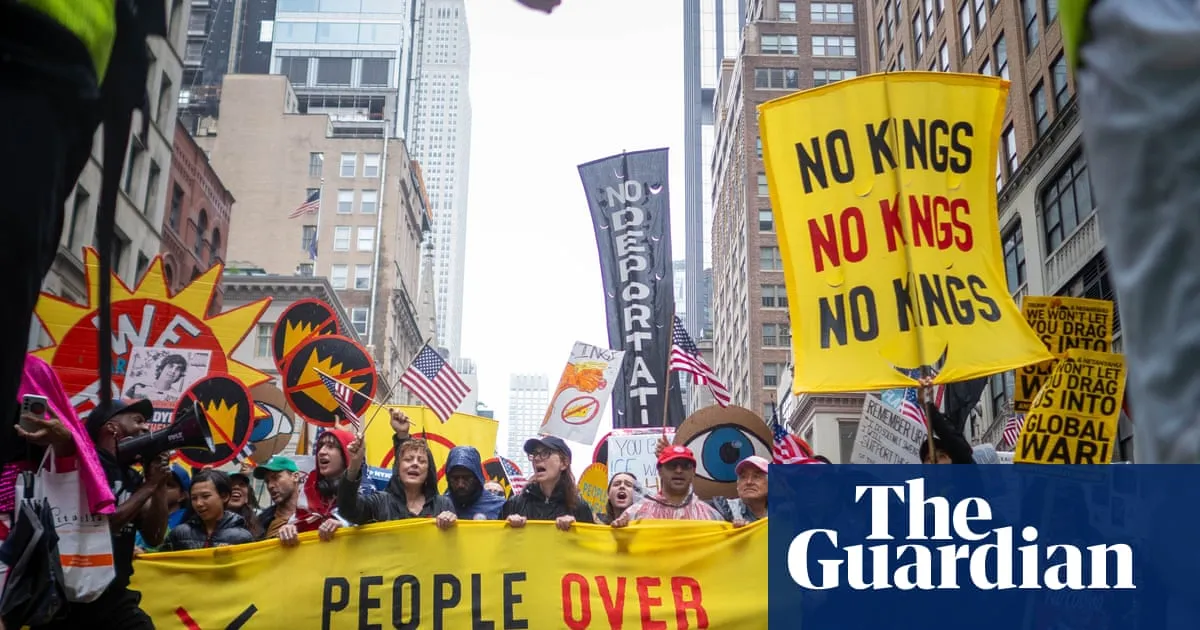
Former President Donald Trump has announced plans for an expanded immigration crackdown in several major Democratic-led cities. This announcement appears to be a response to the "No Kings" protests that took place over the weekend, drawing millions of participants across the nation. Despite the fervor, questions have arisen regarding the financial stability of the agency responsible for this crackdown, namely the U.S. Immigration and Customs Enforcement (ICE).
Reports from Axios on Monday indicated that ICE is currently $1 billion over budget and may run out of funding within the next one to three months. Trump's proposed immigration bill, which he described as a “big, beautiful bill,” allocates tens of billions of dollars to ICE over the next five years. However, if this bill fails to pass through Congress, Trump has suggested he might redirect other government funds to support ICE's operations.
In a lengthy post on his Truth Social platform, Trump alleged—without evidence—that certain cities have become the "core of the Democratic power center" by supposedly utilizing "illegal aliens to expand their voter base." It's important to note that non-citizens are prohibited from voting in U.S. elections, and there is no substantial evidence to support claims of widespread voting by non-citizens.
Trump urged ICE officers to prioritize what he termed the "single largest Mass Deportation Program in History," asserting that efforts must be intensified to detain and deport illegal aliens from major cities like Los Angeles, Chicago, and New York, where he claims millions of illegal residents reside.
Los Angeles has become a focal point for protests against ICE raids, leading Trump to deploy National Guard troops and U.S. Marines in what many perceive as an unprecedented show of force. This past Saturday, the city hosted one of the largest "No Kings" demonstrations in the country, with organizers estimating attendance at around 200,000 people.
Trump's stance on immigration has seen significant fluctuations in recent days. Just last week, his administration directed ICE to halt workplace immigration enforcement actions not linked to criminal investigations, responding to public backlash regarding raids that negatively impact industries heavily reliant on immigrant labor, such as farming and tourism. Trump acknowledged these concerns in a Truth Social post, indicating that “changes are coming.”
However, his latest Sunday night post seems to contradict this softer stance, specifically targeting Democratic-controlled cities with large immigrant populations while notably omitting those led by Republicans. His choice of the term "remigration" to describe the deportation agenda raises eyebrows and is perceived to be a deliberate strategy.
Trump's statements followed a military parade in Washington, D.C., ostensibly meant to celebrate the 250th anniversary of the U.S. Army but criticized as a self-indulgent display on his 79th birthday. Observers noted the event felt lackluster, with sentiments expressing discontent over the politicization of military traditions.
As commander-in-chief, Trump has faced scrutiny for intertwining military events with political rhetoric. At a recent event in Fort Bragg, North Carolina, he was seen promoting Trump merchandise to active-duty soldiers, further blurring the lines between military service and political campaigning. During these appearances, he criticized Democratic leaders, including California Governor Gavin Newsom and Los Angeles Mayor Karen Bass, accusing them of incompetence and undermining federal law.
Trump's directives to ICE and the Department of Homeland Security to ramp up operations come alongside calls from his immigration advisor, Stephen Miller, for a minimum of 3,000 arrests per day. Analysts like Chuck Todd, former host of NBC’s Meet the Press, have noted that Trump is "openly admitting that he’s politicizing law enforcement," raising concerns about the implications of such actions on civil liberties and community relations.